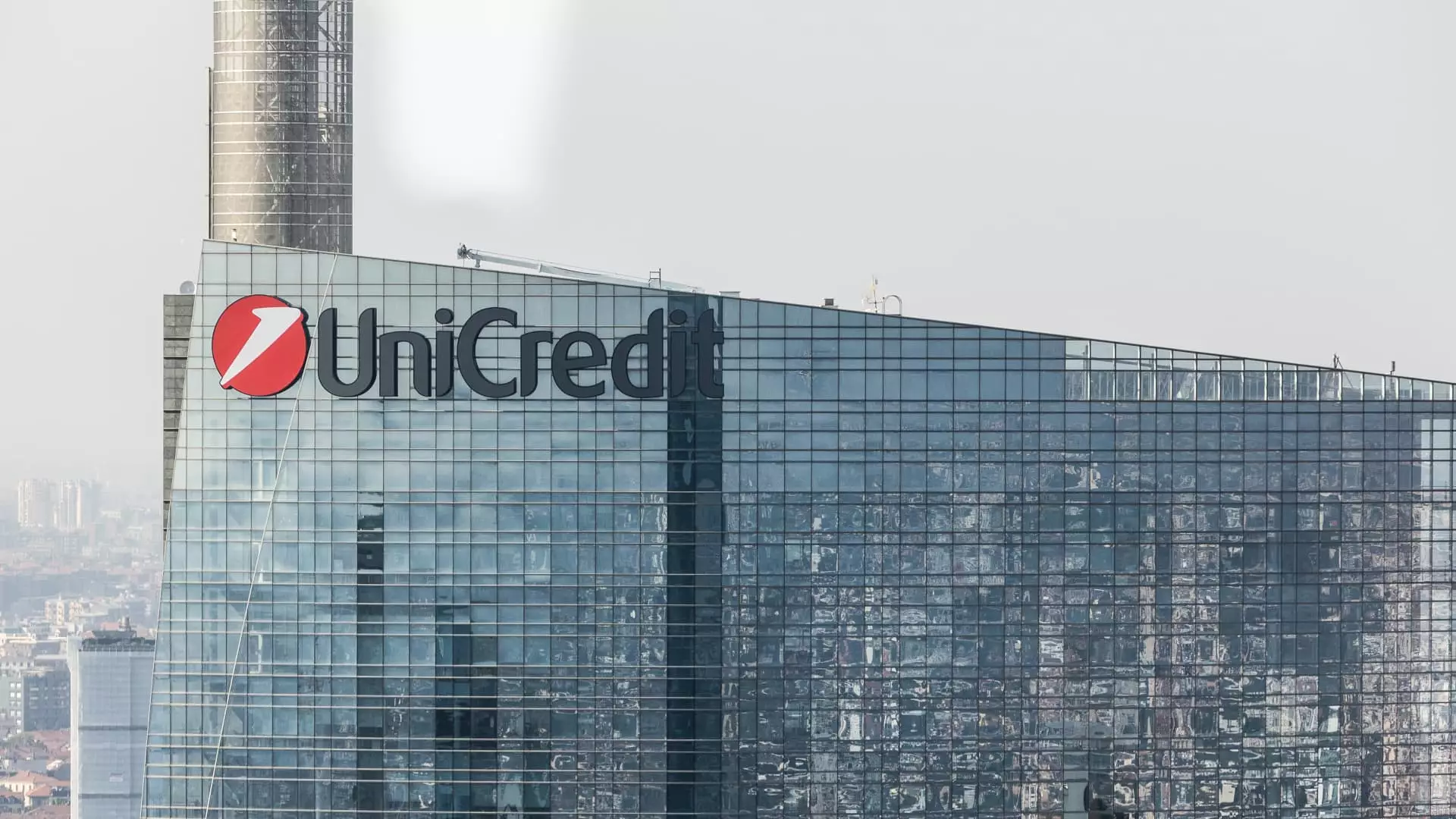In a financial landscape riddled with uncertainties, UniCredit’s recent earnings announcement appears to shine with a superficial luster of triumph, yet beneath this glimmer lies a complex web of strategic compromises and looming vulnerabilities. The Italian banking titan reports a striking 25% surge in net profit for the second quarter, reaching €3.3 billion. On paper, this figure suggests a resilient, thriving institution. But a closer examination reveals that such gains are heavily bolstered by one-off items and external accounting maneuvers, masking underlying fragility. The decline in net revenues—down 4.7% year-on-year—casts doubt on the sustainability of this apparent growth. It is easy to celebrate the increase in return on tangible equity to 24.1%, but this metric, while impressive on the surface, distracts from the stagnant or declining core income streams which have been marginally stable at best. Behind the euphoric headlines, the financial reality is a bank trying to stay afloat amid waves of geopolitical and regulatory turbulence—hardly a sign of invincibility.
The Myth of Strategic Certainty amid Growing Headwinds
Moving beyond numbers, the decision to abandon the proposed takeover of Banco BPM exposes a poignant truth: the façade of strategic ambition is fundamentally compromised by political interference and systemic obstacles. UniCredit’s retreat was not a matter of choice but one of necessity—Rome’s invocation of the “golden power” rules effectively crushed what was an otherwise ordinary M&A deal. Despite its financial strength, the bank has toppled beneath the weight of governmental nationalism and the risk-averse stance of European regulators. This isn’t mere bureaucratic caution; it’s symptomatic of a broader ideological shift wherein nations oscillate between desire for sovereignty and the recognition that banking consolidation might benefit the economy. Yet, in this case, political intervention serves as a barrier to real market-driven growth, turning what should be strategic mergers into pawn pieces in a larger game of national security and political leverage. The bank’s leadership, while rhetorically emphasizing value creation, must grapple with the uncomfortable truth: their hands are tied in their quest for expansion, rendering their ambitions somewhat hollow.
The Disillusioning Reality of Power and Control
Andrea Orcel’s statements echo a refrain familiar to many managers in Europe—the mantra that their primary responsibility is to build a “bulletproof” institution, not to chase speculative mergers. His candid admission that the Banco BPM attempt had become a “drag” underscores a sobering reality: the pursuit of growth at any cost is often secondary to navigating political roadblocks and external pressures. The focus shifts from creating shareholder value to safeguarding the bank’s core operations amid legislative stifles. It’s an unsettling reflection of how power dynamics in Europe’s banking sector are increasingly skewed; banks are less autonomous and more susceptible to governmental dictates than ever before. The dissonance between the bank’s declared goals and political realities exemplifies a structural weakness—an industry where strategic options are constrained by the whims of state actors, not by market merit.
The Implications of Regulatory Overreach and Nationalism
The European Union’s rising critique of national interference in banking mergers marks a pivotal shift in regional financial governance. The use of “golden power” by Italy, and similar interventions in places like Spain, threaten the very fabric of a unified European banking market. UniCredit’s experience symbolizes a broader crisis: the erosion of cross-border cooperation and the rise of protectionist instincts that threaten to fragment the eurozone’s financial stability. Rather than fostering a competitive and innovative environment conducive to growth, these political maneuvers create a landscape fraught with uncertainty and risk. For a bank like UniCredit, whose strategic ambitions include consolidating key European assets, such barriers are not just annoyances—they are existential threats. The irony is that while large banks are often portrayed as engines of economic growth, their ability to operate in this environment is increasingly dictated by nationalist agendas, undermining the principles of open markets and free enterprise.
Beyond the Numbers: A Cautionary Tale for Europe’s Banking Future
UniCredit’s recent results, though superficially promising, serve as a stark reminder of the fragile veneer of success in Europe’s banking sector. The bank’s decision to step back from expansion, despite record profits and capital ratios, underscores the pervasiveness of external influences that dominate strategic decision-making. The narrative of resilience is increasingly marred by a systemic inability to grow through conventional means. Instead, banks are forced to navigate a minefield where political restrictions, regulatory hurdles, and nationalistic sentiments conspire against their growth ambitions. As the region grapples with these headwinds, it becomes clear that European banks may need to re-evaluate their priorities—not just in terms of financial metrics but in understanding whom they truly serve. Is their purpose to create value within a free market, or to abide by political gatekeeping that threatens to stifle genuine competitiveness? The answer will define not only the future trajectory of institutions like UniCredit but also the integrity of Europe’s financial unity in an increasingly fragmented world.

